Last updated on January 11th, 2025 at 09:30 pm
Color Easter Eggs Naturally With Dyes From Your Kitchen
The most beautiful dyes for Easter eggs come from foods and spices you probably already have in your kitchen.

by Debra Lynn Dadd
I have been delighted with the results of the colors I have tried and my friends have been thrilled to receive them as springtime gifts. The colors are gentle, earthy, soft, and very vibrant, without being harsh like the artificial dyes – and when I tell people the colors come from plant dyes, they always want to know the origin of each color.
To color these eggs in a natural way, you boil the eggs with the dyestuff, rather than boiling the eggs separately and then dying them.
General Directions to Dye Eggs:

Put raw, white-shelled, organically-raised eggs in a single layer in a pan. Cover with cold water. Add a little more than a teaspoon of white vinegar.
Add the natural dyestuff for the color you want your eggs to be. The more eggs you are dying at a time, the more dye you will need to use, and the more dye you use, the darker the color will be.
Bring water to a boil, then reduce heat and simmer for 15 minutes.
Quickly check the eggs for color by removing them from the dye liquid with a slotted spoon.
If the color is as desired, pour off the hot dye liquid and rinse the eggs immediately in cold water to stop the eggs from cooking. Continue to change the water until it stays cool in the pot because the eggs are no longer releasing heat. Drain and allow eggs to cool in the refrigerator.
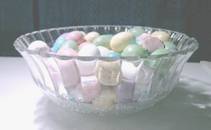
For Deeper Colored Eggs
If you wish a deeper color, strain the hot dye liquid into a container, then rinse the eggs immediately in cold water to stop them from cooking. Continue to change the water until it stays cool in the pot because the eggs are no longer releasing heat. Drain the last of the cold water, then cover the eggs with the strained dye liquid. Add more water if necessary so that the eggs are completely covered. Put into the refrigerator immediately and keep eggs in the refrigerator until the desired shade is achieved. Overnight is good. Longer than about twelve hours some of the colors just get muddier instead of deeper, and the lighter shades are more vibrant.
Try These Foods to Dye Eggs in Different Colors Naturally:

- Red or Pink: Use lots of red onion skins, cranberry juice, or frozen raspberries or cranberries.
- Orange: Simmer in yellow onion skins.
- Brown: Try red beet skins, coffee, or grape juice (produces a beautiful sparkling tan).
- Yellow: Saffron, turmeric or cumin, orange or lemon peels, or celery seed.
- Green: Spinach, carrot tops, or peels from Yellow Delicious apples for a yellow-green. Also try parsley for a pale green tinge.
- Blue: Red cabbage leaves make the most incredible robin’s egg blue. Blueberries result in a muted blue or grayish purple.
- Deep purple: Red wine makes for a beautiful burgundy color.
- Brown: Coffee produces a rich brown while tea produces warm brown to beige tones.
Tips for successful results:
Use filtered or distilled water. Chlorine and other chemicals will work against the dye, making it less intense. Buy distilled water or use your own filtered water.
For deeper colors, use more dyestuff or let the eggs soak longer. For even coverage, cook eggs in a pot large enough to hold enough water and dyestuff to completely cover the eggs, even after some of the liquid has evaporated during the 15 minute of boiling.
Ensure even coverage: again, if you continue to soak the eggs in the refrigerator after cooking, make sure the eggs are completely covered with the dye liquid. Blot the eggs dry or allow them to air dry, as for some colors the dye will rub off while still wet. On the other hand, if you wish to make a white pattern on the egg, you can rub off some of the dye for some colors immediately after cooking.
Make sure eggs of different colors are completely dry before piling them up in a bowl together, as wet dye from one egg can transfer to another.
For egg-stra fun, try making Boiled Egg Bunnies, Devilled Egg Chicks, Ribbon Eggs, or Hollow Eggs. Craft paint or tempera paint may be used on naturally dyed eggs for a painted Speckled Egg effect.
About the Author: Hailed as “The Queen of Green” by the New York Times, Debra Lynn Dadd is a consumer advocate for products and lifestyle choices.

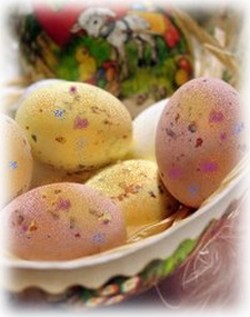
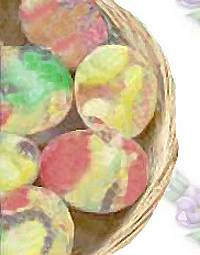

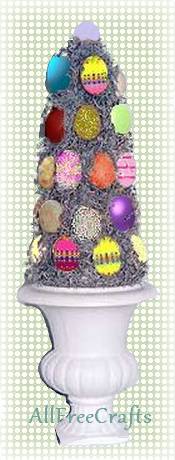

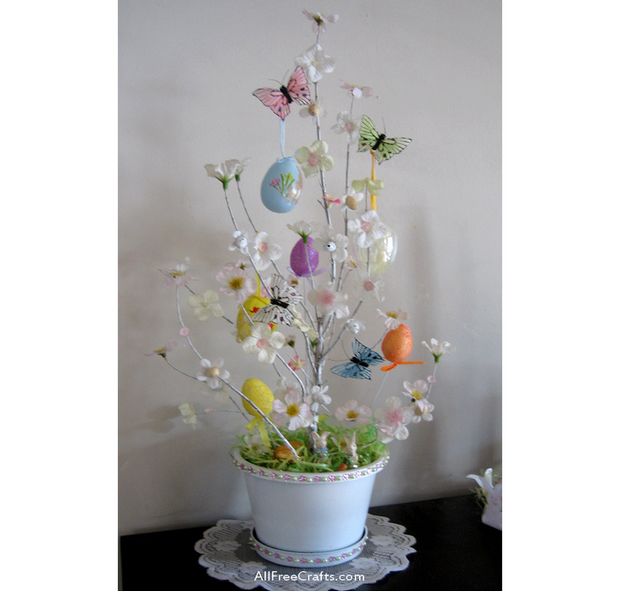
Leave a Reply